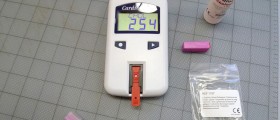
When it comes to niacin, a fact perhaps not so well known is that it belongs to the category of substances that are regarded as body essentials, which means those most important nutrients necessary for the normal functioning of our organism. However, despite this, in case there occurs too much of it inside one's body, this could have quite problematic repercussions on one's health.
Facts and briefs
The nutrient in question belongs to the group of water-soluble B-complex vitamins, and is also known as the Vitamin B3. As far as its function, it is considered to be quite vital in metabolism of food, and it is also quite frequently encountered in such food sources as fish, poultry, eggs, nuts, lean meat etc. In terms of its usage, niacin is employed by the body as an energy source for our metabolism, as well as for promotion of nervous system health and good digestion. Given the fact that it belongs to such substances that are readily soluble in water, it does not remain inside the body, but is excreted outside it by way or urine. And this is also the primary reason why the intake of niacin must be constant, in order for its levels to be kept at those desired and needed levels.
In addition, niacin is also known to be quite a vital constituent of medicines that are employed for the purpose of treating such conditions as elevated cholesterol levels and issues directly related to the elevated lipid fats. Furthermore, it is known to promote and facilitate the rise in the levels of the desired cholesterol, and the fall of the ill cholesterol, which tends to build up all to quickly and all to often.
Intake and proper dosages
It is not only a high dosage of niacin that can bring about the occurrence of ill effects, but the lack of it in proper amounts has its troubling implications as well. One of the conditions directly related to the decreased amount of niacin is pellagra. On the other hand, too high quantities of it have the tendency to induce such troubling ailments as liver damage, problems with digestion, and last but not the least, the occurrence of quite unpleasant skin rash.
Unwanted manifestations of the latter include flushing of the skin, bloating, flatulence, nausea, vomiting, diarrhea, blood pressure reduction (rare), peptic ulcer, blurred vision, jaundice, liver disorder and similar quite unpleasant ailments.

















Your thoughts on this
Loading...